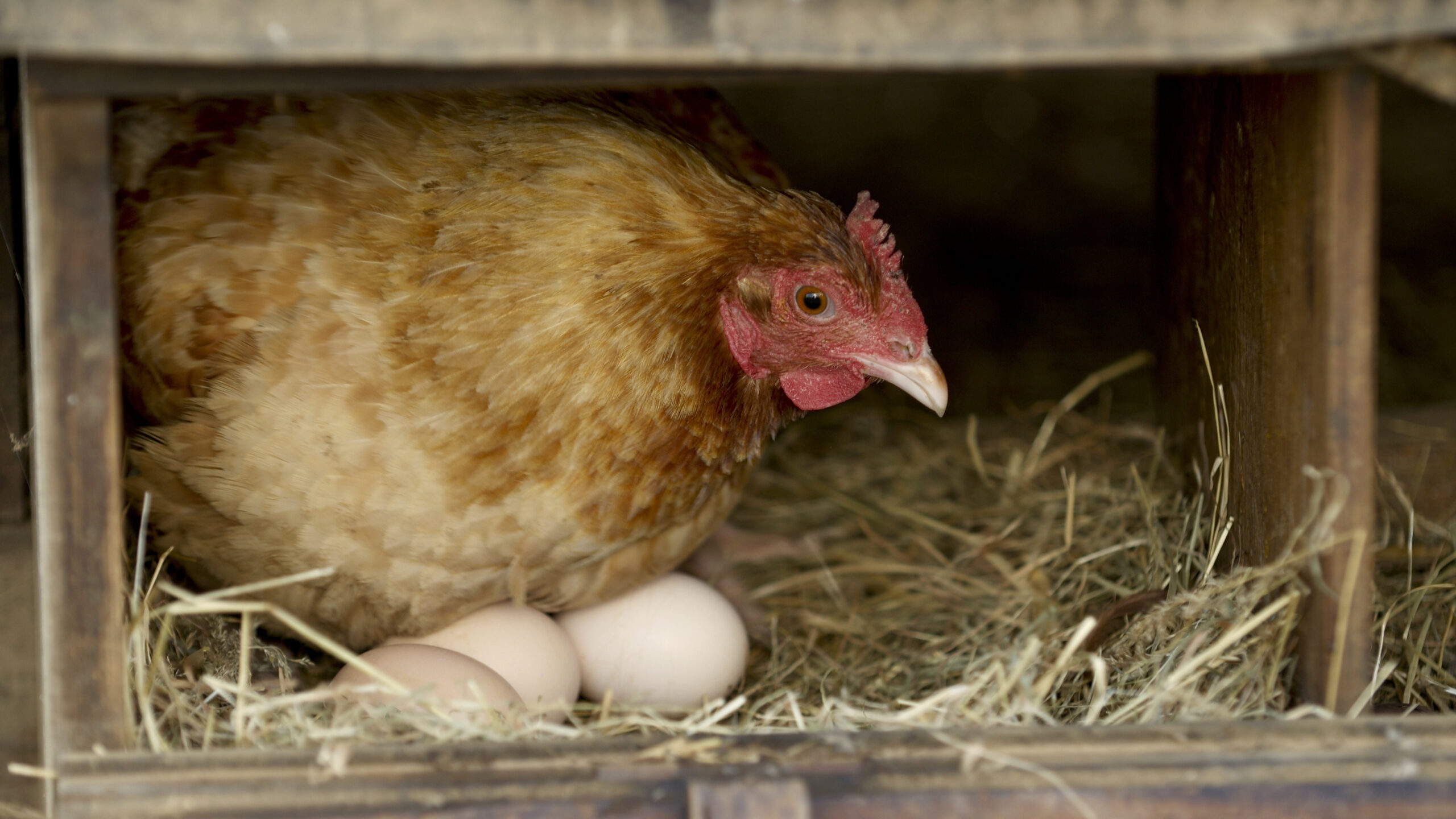If you’re looking for a way to make the most out of your chicken husbandry, then fresh laid eggs should be at the top of your list. Fresh laid eggs provide many benefits, from their high nutritional content to the convenience of having them readily available. This article will provide an overview of the benefits of fresh laid eggs, as well as tips on how to ensure you get the most out of your chicken husbandry.
Benefits of Fresh Laid Eggs
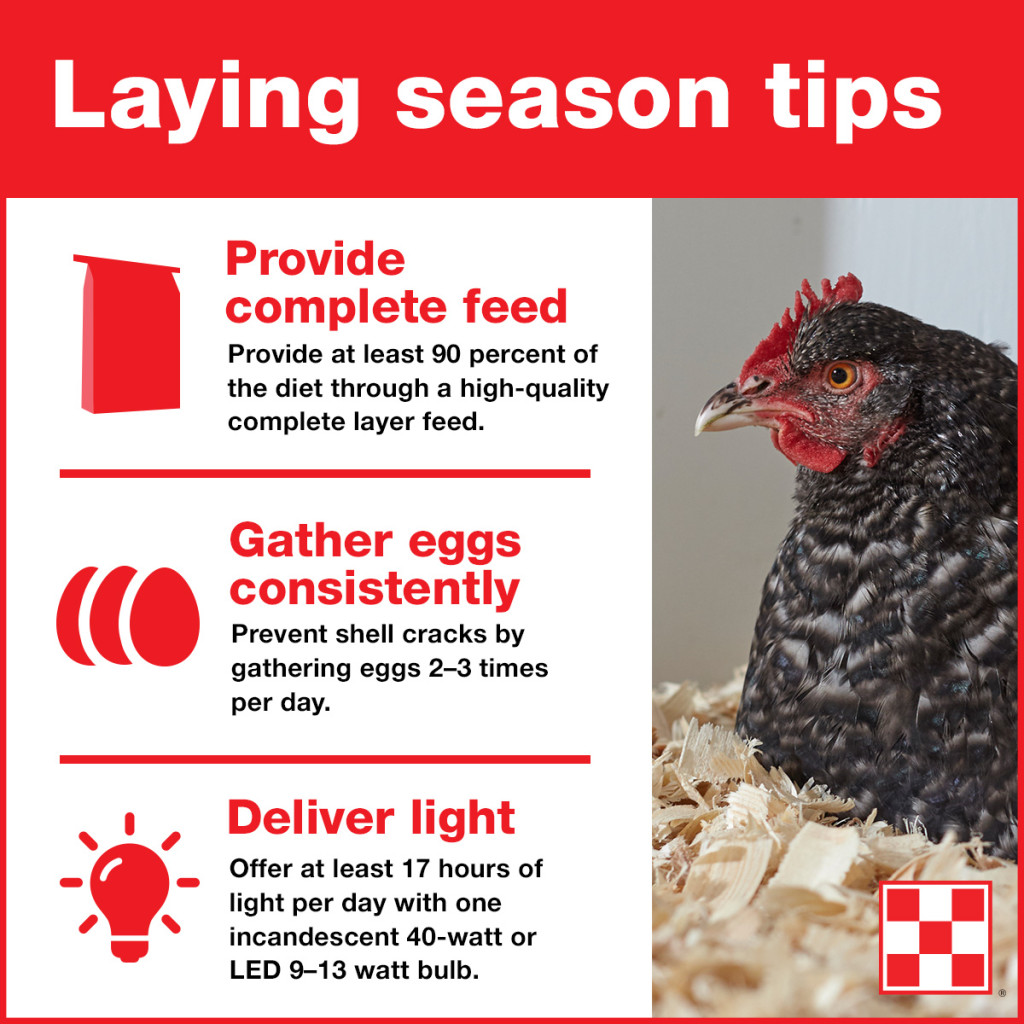
| Freshness | Fresh chicken eggs are more nutritious and have better flavor when compared to store-bought eggs. |
| Variety | You can choose from a variety of egg sizes, shapes, and colors depending on the breed of chicken you have. |
| Nutrients | Fresh laid eggs contain a high level of essential vitamins and minerals like; protein, vitamins A, D, E, and B12, calcium, iron, and zinc. |
| Health Benefits | Eating fresh laid eggs can reduce the risk of heart disease, stroke, and diabetes, as well as help to prevent certain types of cancers. |
| Taste | Fresh laid eggs are more flavorful than store-bought eggs and have a richer texture. |
Fresh laid eggs provide many benefits over store-bought eggs, including freshness, variety, nutrients, health benefits, and tastier flavor. Eating fresh laid eggs can help to reduce the risk of certain diseases and provide essential vitamins and minerals. They also have a richer texture and more flavorful taste than store-bought eggs.
How to Identify Fresh Laid Eggs
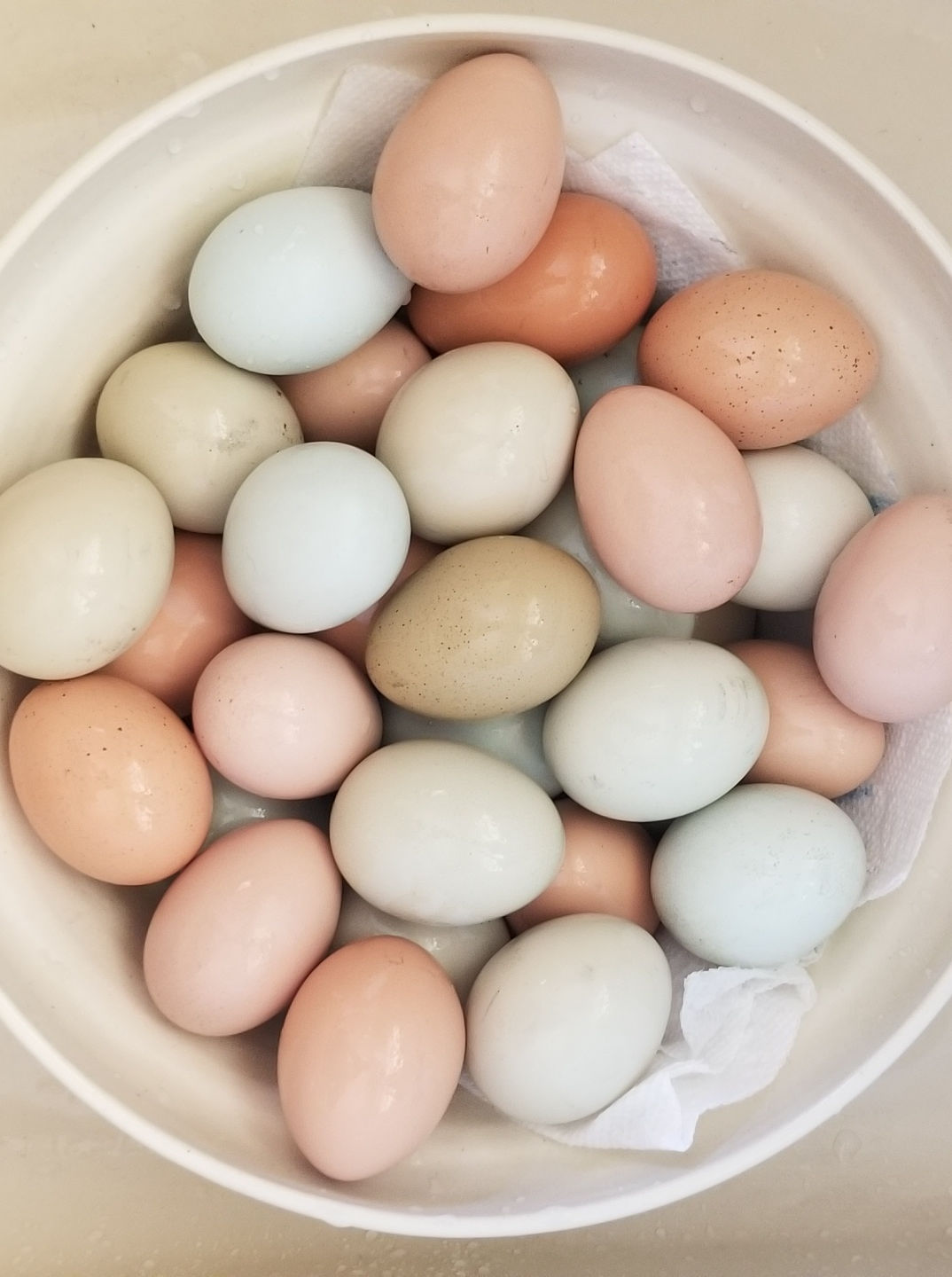
Farm fresh eggs are highly sought-after for their taste and nutritional benefits, so it is important to know how to identify them. To determine if an egg is fresh, you can check for a few different characteristics.
Shell Color and Texture – Fresh laid eggs typically have a smooth, hard shell with a uniform color. If an egg has a rough or bumpy shell, it is likely older.
Size – When hens are younger, their eggs tend to be smaller than those laid by older hens. In general, larger eggs are older than smaller eggs.
Yolk Color – Freshly laid eggs have deep yellow or orange yolks. As eggs get older, their yolks will become paler.
Weight – You can also check the weight of an egg to determine its freshness. Fresh eggs tend to be denser and heavier than older eggs.
Once you have identified fresh laid eggs, you can enjoy them in a variety of dishes or use them to make delicious, nutritious meals with farm fresh eggs.
How to Store Fresh Laid Eggs
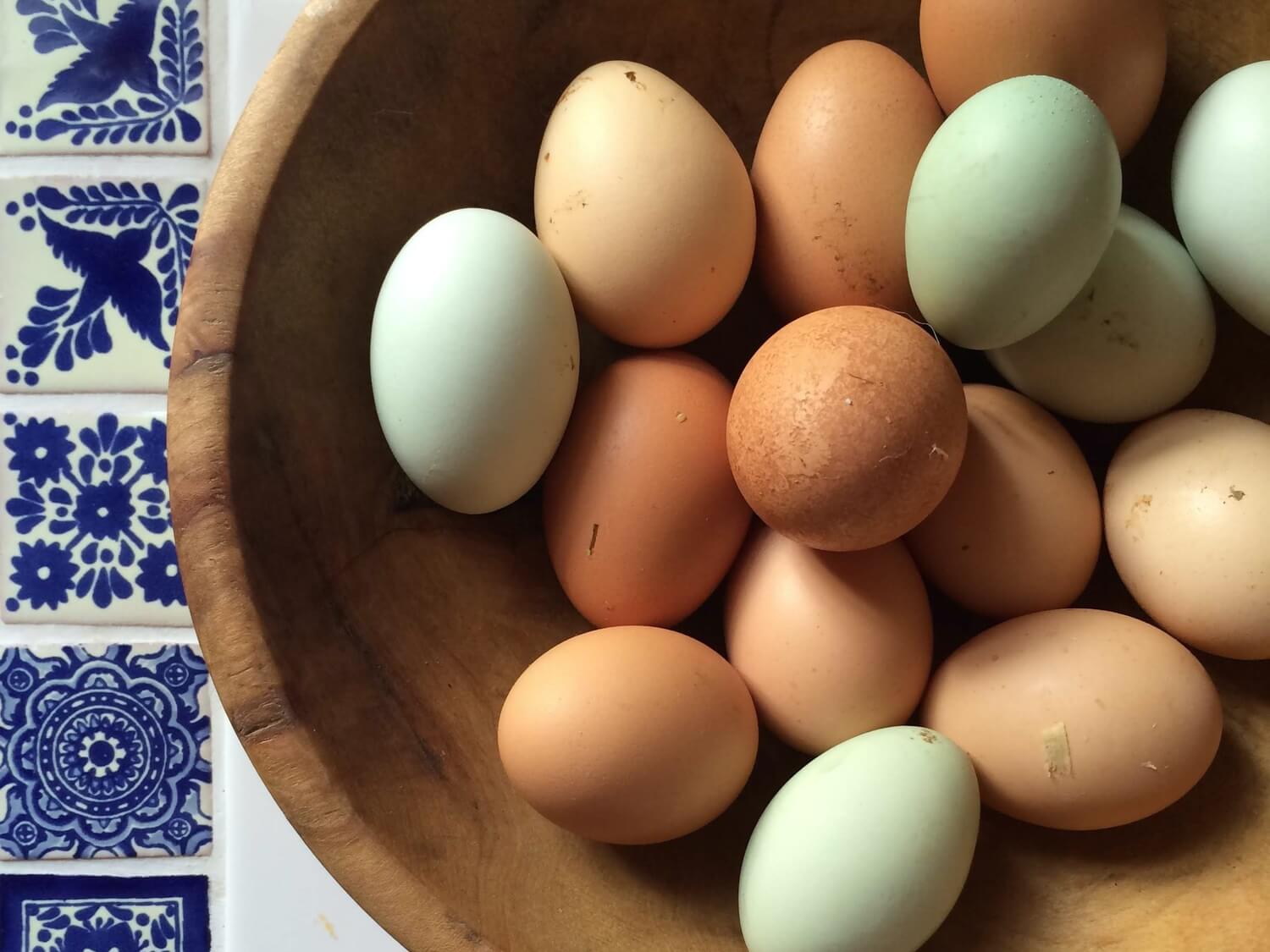
It is essential to handle fresh eggs with care to get the most out of chicken husbandry. Here are a few simple tips on how to store fresh laid eggs:
- Keep them refrigerated: Once eggs are laid, they should be stored in the refrigerator as soon as possible. This helps keep them fresh and prevents them from spoiling.
- Keep them in the carton: It is important to keep fresh eggs in their original carton. This ensures that the eggs are kept at the same temperature and prevents them from absorbing any flavors or odors from other food items.
- Don’t wash them: It is not recommended to wash fresh eggs before storage as this can remove the protective coating that helps to keep them fresher for longer.
- Label them: Label the carton with the date the eggs were laid. This will help you keep track of the freshness of the eggs and make it easier to use the oldest eggs first.
By following these simple tips, you can make sure that the fresh eggs you have laid are stored properly and can be used safely.
How to Handle Farm Fresh Eggs
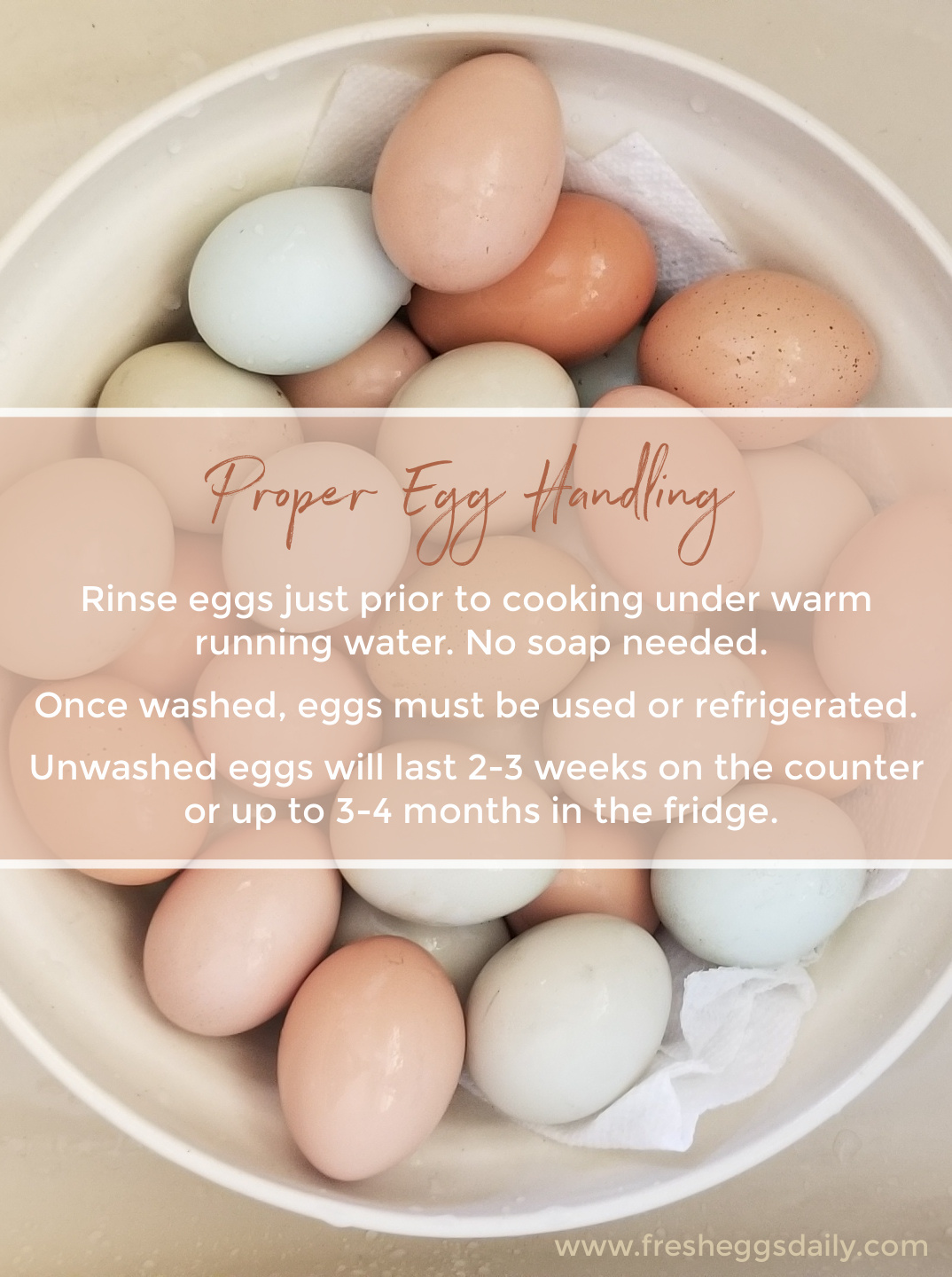
- Store them correctly: Farm fresh eggs should be stored in a cool, dry place, away from direct sunlight. If possible, store them in their original carton.
- Check for cracks: Before using the eggs, check them for any cracks. If the eggshell has a crack, discard it.
- Check the expiration date: Most farm fresh eggs have a “best by” date stamped on the carton. Make sure to check the date before using them.
- Clean the eggs: Fresh laid eggs may still have some dirt or debris on them. Make sure to wash them with warm water and a mild soap before using them.
- Cook them thoroughly: Farm fresh eggs should always be cooked thoroughly before eating. Raw eggs can contain harmful bacteria, so make sure to cook them until the yolks and whites are firm.
Farm fresh eggs are a great way to get the most out of chicken husbandry. By following these steps, you can ensure that your fresh laid eggs are safe to use and contain the highest quality of nutrients.
How to Prepare Fresh Eggs
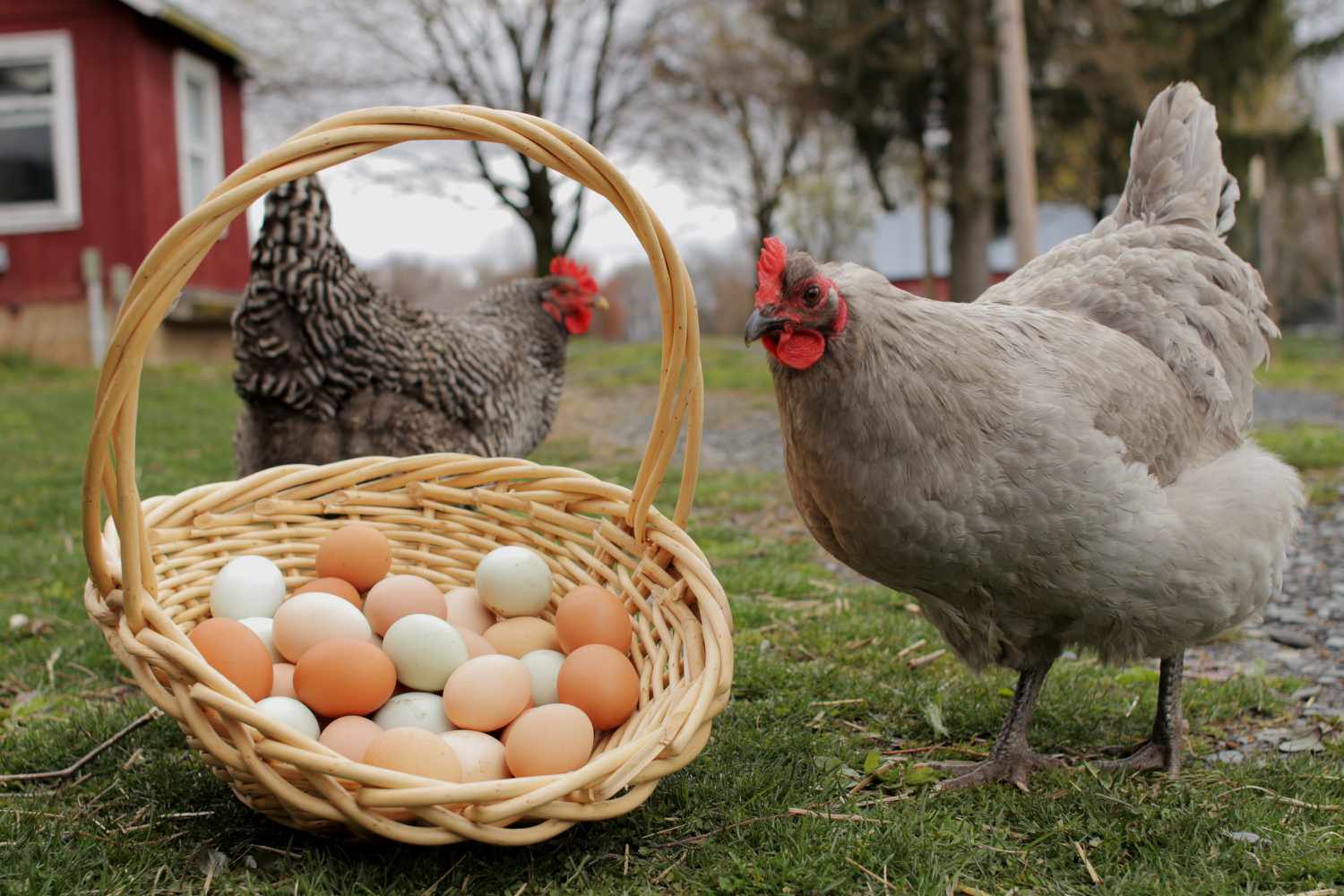
- Choose the freshest eggs: Select eggs that are free of cracks and unbroken. If possible, buy eggs from local farmers and producers who raise organic, free-range chickens.
- Clean eggs before use: For best results, eggs should be washed in warm water before use. This will help to remove any bacteria or dirt that may have accumulated on the eggs during the collection process.
- Store eggs properly: Fresh eggs should be stored in the refrigerator and used within two weeks of being laid.
- Cook eggs correctly: Fresh eggs should be cooked thoroughly to kill any bacteria that may be present. For hard-boiled eggs, bring a pot of water to a boil, and then reduce heat to a simmer. Place eggs in simmering water and cook for 10-12 minutes.
- Scramble eggs gently: When scrambling eggs, use a low heat setting. This will help to preserve the flavor and texture of the eggs.
- Poach eggs carefully: Poaching eggs is a simple and delicious way to prepare fresh eggs. Heat a pot of water until just below boiling, then gently slide the eggs into the water. Cook for 3-4 minutes, or until the whites are set and the yolks are still runny.
What to Do With Farm Fresh Eggs
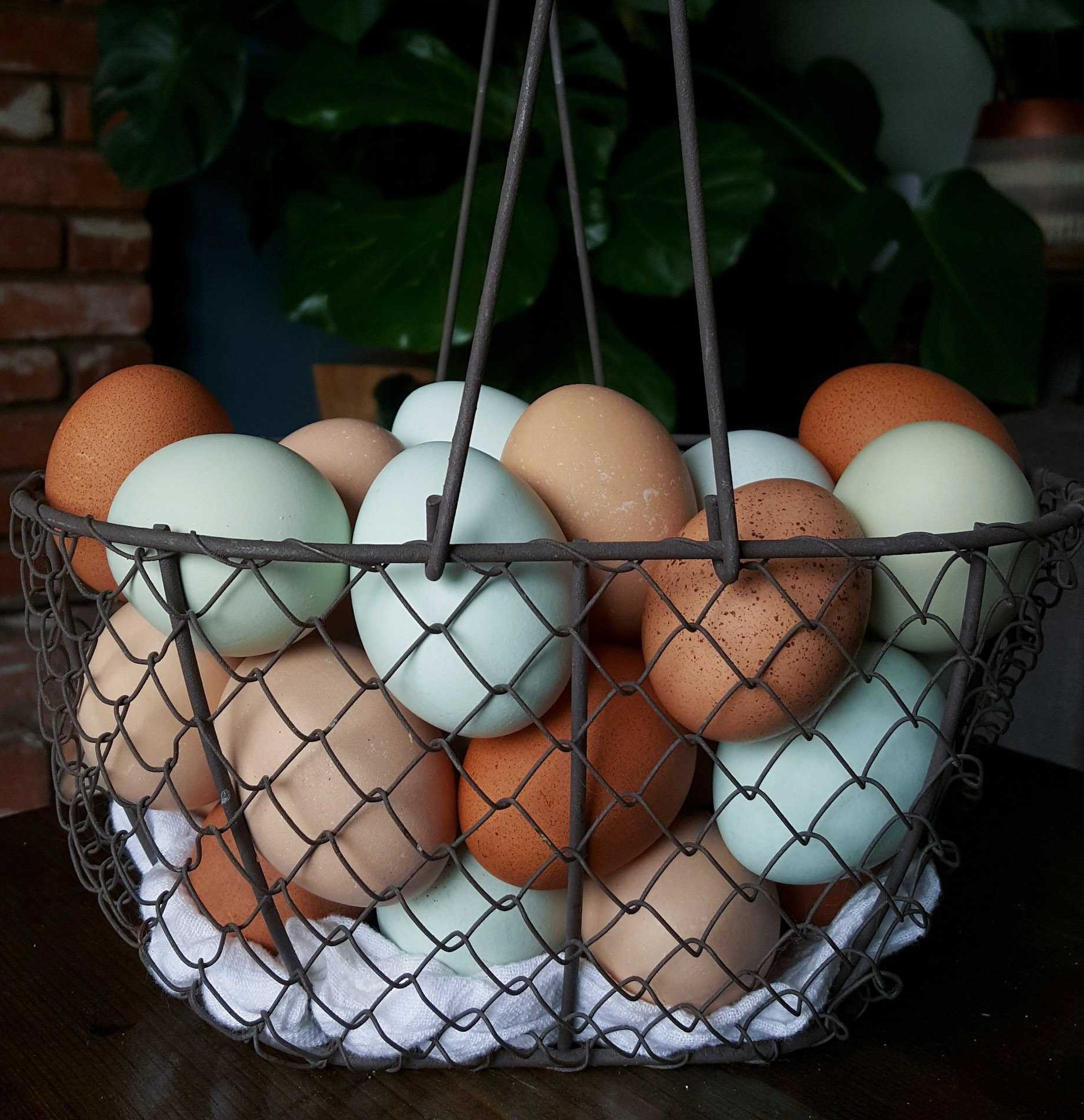
- Cook and Bake: Farm fresh eggs are great for cooking and baking. They can be used in omelets, scrambled eggs, quiches, cakes, cookies, and breads.
- Preserve: Preserving farm fresh eggs is a great way to extend their shelf life. You can preserve eggs by pickling, drying, curing, or freezing.
- Eat Raw: Farm fresh eggs can be eaten raw if they are fresh and have been properly handled and stored.
- Make Egg Noodles: Egg noodles are a delicious and easy way to use up farm fresh eggs. You can make them with all-purpose flour, salt, and egg.
- Make Egg Custards: Egg custards are a delicious and classic way to use up farm fresh eggs. They are simple to make and can be flavored with whatever ingredients you like.
- Make Mayonnaise: Mayonnaise is a classic condiment that is easy to make at home with farm fresh eggs.
- Make Ice Cream: You can make homemade ice cream with farm fresh eggs. It is a delicious and simple way to use up farm fresh eggs.
How to Tell if Eggs Are Fresh
| Test | Description |
|---|---|
| Float Test | Fill a bowl with cold water and drop an egg in it. If it sinks to the bottom, it is fresh. If it floats, it is old. |
| Shell Test | Examine the eggshell closely. Fresh eggs have shells that are smooth, without ridges or bumps. Older eggs have rough shells. |
| Candling Test | Hold the egg up to a bright light. If the egg is fresh, the yolk will be round and the white will be clear. If the egg is old, the yolk will be flat and spread out, and the white will be cloudy. |
Checking if eggs are fresh is an important part of chicken husbandry. When fresh eggs are used, they can be a nutritious, delicious part of your diet. There are three tests you can use to determine if an egg is fresh: the float test, the shell test, and the candling test.
The float test is the simplest test to use. Fill a bowl with cold water and drop an egg in it. If it sinks to the bottom, it is fresh. If it floats, it is old.
The shell test is another way to check for freshness. Examine the eggshell closely. Fresh eggs have shells that are smooth, without ridges or bumps. Older eggs have rough shells.
The most accurate way to determine if an egg is fresh is to do the candling test. Hold the egg up to a bright light. If the egg is fresh, the yolk will be round and the white will be clear. If the egg is old, the yolk will be flat and spread out, and the white will be cloudy.
Nutritional Benefits of Fresh Eggs
Fresh eggs are known to contain more vitamins and minerals such as vitamin A, B-complex vitamins, and essential fatty acids than store-bought eggs. They also contain higher levels of omega-3 fatty acids, which are important for maintaining heart health and fighting inflammation. Farm fresh eggs are also a great source of protein and are low in sodium and cholesterol.
Raising chickens in the backyard can provide fresh eggs for your family, but it is important to know how to handle farm fresh eggs properly to ensure the eggs are safe to eat. Fresh chicken eggs should be washed in warm water and a mild detergent and then refrigerated as soon as possible. It is important to remember that farm fresh eggs can spoil quickly, so it is best to use them within a few days of collecting them.
Once the eggs have been collected and properly stored, it is time to enjoy them. What to do with farm fresh eggs is a personal choice, but the most popular options are to scramble, fry, poach, or bake them. Farm fresh eggs are also great for making omelets, quiches, frittatas, and other egg dishes.
It is important to remember that farm fresh eggs can spoil quickly, so it is important to know how to handle fresh eggs correctly. Always wash your hands before handling farm fresh eggs and avoid keeping them at room temperature for longer than two hours. Refrigerating the eggs as soon as possible is the best way to keep them safe and fresh.
Raising chickens can be a rewarding experience and the fresh laid eggs are a delicious, nutritious treat. Knowing how to handle farm fresh eggs correctly and store them properly will help ensure that you and your family can enjoy the benefits of fresh eggs for many years to come.
Frequently Asked Questions
What are the Benefits of Raising Chickens for Fresh Laid Eggs?
Raising chickens for fresh laid eggs is an excellent way to provide your family with nutritious and delicious food. Chickens are easy to care for, provide eggs for breakfast, and can even double as a source of income. Fresh eggs contain higher levels of vitamins and minerals than store-bought eggs, as well as having fewer hormones, antibiotics, and other additives. Keeping chickens is also a great way to reduce food waste and provide additional compost for your garden. Additionally, chickens can provide hours of entertainment, as they can be trained to do tricks, and can even be taught to come when called.
What are the Best Practices for Keeping Chickens Healthy and Producing Eggs?
Provide Nutritious Food: Feeding chickens a balanced diet is key to keeping them healthy and producing eggs. Offer a variety of food, including grains, vegetables, and protein sources like legumes, fishmeal, and mealworms.
Maintain Cleanliness: Clean the chicken coop regularly to eliminate bacteria, parasites, and other health risks. Change the bedding, scrub the walls and floors, and check for any signs of disease.
Keep Them Safe: Provide secure fencing and take measures to deter predators. Monitor your flock for any signs of injury or distress.
Monitor Health: Watch for any signs of illness or disease, such as diarrhea, weight loss, or lethargy. If any of these signs are present, seek veterinary advice immediately.
Give Them Space: Provide enough space for your chickens to move around and forage. A coop with outdoor access is ideal for chickens to explore and interact.
Regular Health Checks: Have a vet check your chickens regularly to ensure they are healthy and producing eggs. This will help you catch any health issues early.
What is the Best Way to Provide Nutrition for Chickens in Order to Produce Good Quality Eggs?
Chickens require a balanced diet of high-quality feed, fresh water, and proper nutrition to lay healthy eggs. A diet consisting of a mix of grains, protein, vitamins, minerals, and water will help ensure optimal egg production. It is important to provide a variety of feed sources, including grains and vegetables, to ensure a balanced diet. Additionally, providing grit and oyster shells for calcium and other minerals is essential for the production of healthy eggs. Finally, controlling the environment (e.g. temperature, humidity, and lighting) is key to proper nutrition and egg production.
What Steps Should Be Taken to Ensure That Eggs Are Collected Safely and Hygienically?
Wash Hands: Before handling eggs, it is important to wash hands thoroughly with soap and warm water.
Wear Gloves: It is also recommended to wear protective gloves while handling eggs, to reduce the risk of contamination.
Sanitise the Area: The area where the eggs will be collected should be sanitised with a suitable cleaning product.
Clean the Eggs: The eggs should be cleaned with warm water and a mild detergent before collecting.
Store Eggs Properly: Once collected, the eggs should be stored in a cool, dry place, away from direct sunlight and other sources of heat.
Check for Cracks: Before collecting eggs, it is important to check for cracks or other signs of damage. If any eggs are cracked, they should not be collected.
Use Appropriate Baskets: The eggs should be collected in clean, appropriate baskets or trays, to prevent them from becoming damaged or contaminated.
What are the Potential Risks Associated with Keeping Chickens in the Home?
The main risk associated with keeping chickens in the home is the potential for the spread of disease. Chickens are susceptible to a variety of illnesses and infections, including salmonella and bird flu. If a chicken is not properly cared for, it could spread disease to humans and other animals. It is important to ensure that chickens are vaccinated and treated for any illnesses or infections, and to practice good hygiene when handling chickens and their droppings. Other dangers include the presence of predators such as foxes, which can easily enter an enclose and attack chickens. In addition, chickens require a lot of space and can become destructive if not given enough room to roam.
Conclusion
Chicken husbandry can be a rewarding and fulfilling experience, and fresh-laid eggs are just one of the many benefits of keeping chickens. With proper care and a little know-how, you can ensure that your chickens will lay healthy eggs for years to come. With the help of these tips and tricks, you can get the most out of your chickens and your eggs.
